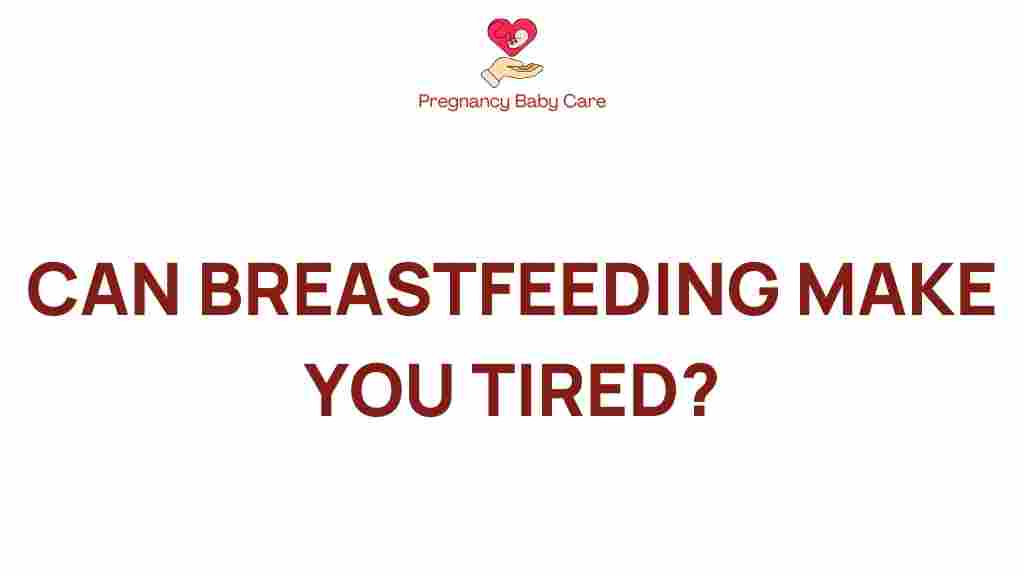The Hidden Fatigue of Breastfeeding: What New Moms Should Know
Becoming a new mom is a transformative experience filled with joy, love, and a host of challenges. One of the most significant yet often overlooked challenges is the hidden fatigue that comes with breastfeeding. While breastfeeding is a natural and rewarding process, it can also be exhausting for new moms. In this article, we will explore the relationship between breastfeeding and fatigue, discuss health and wellness for new mothers, and offer practical advice for managing postpartum fatigue.
Understanding Breastfeeding Fatigue
Breastfeeding is not just about nourishing your baby; it’s also a physically and emotionally demanding task. Many new moms experience overwhelming fatigue during the postpartum period, and breastfeeding can contribute significantly to this exhaustion. Here are some key points to understand:
- Physical Demands: Breastfeeding requires energy. The body is working hard to produce milk, which can take a toll on your overall energy levels.
- Sleep Disruption: Newborns often feed frequently, including during the night. This can lead to broken sleep patterns and chronic fatigue.
- Hormonal Changes: After childbirth, hormone levels fluctuate, which can impact mood, energy, and overall well-being.
- Emotional Stress: The pressures of motherhood and ensuring your baby is thriving can add to stress and fatigue.
The Cycle of Fatigue
Fatigue can create a vicious cycle. When new moms are tired, it can affect their ability to care for their baby, which can lead to increased stress and anxiety. This, in turn, can further impact sleep and energy levels, making it harder to break the cycle of exhaustion.
Recognizing the Signs of Fatigue
It’s essential for new moms to recognize the signs of fatigue, as this can help them seek the support they need. Common signs include:
- Persistent tiredness even after sleep
- Difficulty concentrating
- Feelings of irritability or mood swings
- Physical symptoms such as headaches or muscle aches
- Increased feelings of anxiety or sadness
Step-by-Step Process to Manage Fatigue
Managing fatigue during the postpartum period requires a multi-faceted approach. Here are some strategies that new moms can implement:
1. Prioritize Sleep
Sleep is crucial for recovery and overall health. Here are some tips to help improve sleep quality:
- Sleep When the Baby Sleeps: Take naps during the day when your baby is sleeping to help catch up on rest.
- Establish a Sleep Routine: Try to create a calming bedtime routine to signal to your body that it’s time to wind down.
- Ask for Help: Don’t hesitate to ask family or friends for help with nighttime feedings.
2. Nutrition and Hydration
Proper nutrition plays a vital role in energy levels. Consider the following:
- Eat Balanced Meals: Focus on whole foods, including fruits, vegetables, whole grains, and lean proteins.
- Stay Hydrated: Drink plenty of water throughout the day, as breastfeeding can lead to dehydration.
- Healthy Snacking: Keep healthy snacks on hand for quick energy boosts.
3. Mindfulness and Relaxation
Incorporating mindfulness practices can help manage stress and improve overall well-being:
- Meditation: Spend a few minutes each day practicing mindfulness or meditation.
- Gentle Exercise: Engage in light physical activity, such as walking, to boost mood and energy levels.
- Breathing Exercises: Use deep breathing techniques to reduce stress and promote relaxation.
4. Seek Support
Building a support network is crucial for new moms. Here are some ways to seek support:
- Join a Support Group: Look for local or online breastfeeding and motherhood support groups.
- Talk to a Healthcare Provider: Discuss any feelings of fatigue or overwhelming emotions with your doctor or a mental health professional.
- Partner Involvement: Encourage your partner to take an active role in baby care to share the responsibilities.
Troubleshooting Common Breastfeeding Challenges
Fatigue can be exacerbated by common breastfeeding challenges. Here are some issues new moms may face and how to address them:
Latching Issues
If your baby is not latching properly, it can lead to discomfort and ineffective feeding, which can increase fatigue. Here’s what to do:
- Consult a lactation consultant for personalized support and guidance.
- Experiment with different breastfeeding positions to find what works best for you and your baby.
Painful Nursing
Pain during nursing can deter you from feeding comfortably, leading to stress and fatigue:
- Apply lanolin cream to soothe sore nipples.
- Ensure your baby is latched correctly to minimize discomfort.
Low Milk Supply
A low milk supply can cause stress and worry, impacting your energy levels:
- Consult with a lactation consultant for strategies to increase milk supply.
- Stay hydrated and nourish your body to support milk production.
The Importance of Self-Care
Self-care is essential for new moms to combat fatigue and promote wellness. Remember that taking care of yourself is not selfish; it’s necessary for effective baby care and overall health. Here are some self-care tips:
- Schedule ‘Me Time’: Dedicate time each week for activities that recharge you, whether it’s reading, taking a bath, or enjoying a hobby.
- Limit Stressors: Identify and minimize sources of stress in your life, whether it’s chores or social obligations.
- Engage in Activities You Love: Reconnect with passions and interests that bring you joy.
Conclusion
Breastfeeding is a beautiful part of motherhood, but it can also come with hidden fatigue that many new moms experience. Understanding this fatigue and implementing strategies to manage it is crucial for both physical and emotional well-being. By prioritizing sleep, nutrition, and self-care, as well as seeking support, new moms can navigate the challenges of breastfeeding with greater ease. Remember, it’s okay to ask for help and take time for yourself. Your health and wellness are paramount, not just for you but for your baby, too.
For more information on postpartum health and wellness, check out this resource. If you’re looking for additional support, consider joining a local group for new moms here.
This article is in the category Health and created by PregnancyBabyCare Team
